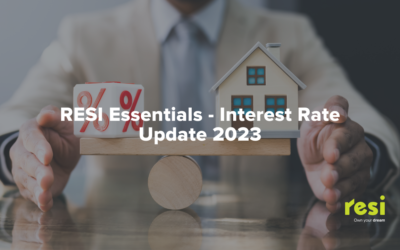In this article:

Risk definition and appetite vary greatly from investor to investor. While there’s a positive correlation between the magnitude of risk and return, figuring out the right balance between the two be challenging. Most large investment decisions that are taken by high net worth investors involve sound research around the three main pillars of property risk, namely – economy, real estate market and debt. One approach to go about this is to rely on market products and services that assess, identify and recommend the ideal level of risk you could reasonably take. Alternatively, if you aren’t up or have the budget for such services, it’s certainly possible and advisable to do the research yourself. Here are some simple and effective tips for minimising risk and getting the best out of your property investment.
Zero in on the correct investment amount
Be realistic about the money you are willing to invest. In addition to using your maximum borrowing capacity assigned by a lender as a guide, understand how much you could comfortably put aside without compromising on your lifestyle significantly. An ambitious investment plan may fall flat if it squeezes you too much and results in defaults thereby putting your return goals at risk. It’s best to buy below your means rather than hitting your financial limit. Maintaining a good buffer gives you enough room to manage market elements.
Diversify
The second property you consider investing in should ideally be quite different from your first. There are four areas of differentiation. The first is the region. If your first property is in a suburb you could opt for something closer to central business district or vice-versa. The second aspect is the type of property. You could choose between an apartment, a home or a townhouse. You could also target different lifestyles. For instance, buying a house in a university town would focus on students. Studios close to CBD are targeted at young professionals who are starting. A diversified portfolio is an effective way to minimise risk and boost returns.
Inspect thoroughly
Inspect the property well to ensure that property structure, appliances, water, plumbing, electricity, air-conditioning are fine. Seek professional expertise if you aren’t certain of doing this yourself. Also, be sure of council approval for property changes or extension.
Pick the correct area
The location of your property impacts investment returns big time. A suburb or district that is upcoming but undervalued drives the highest returns. Such locations typically include regions that are being considered by the government or businesses for development. Development implies better infrastructure. Better infrastructure attracts businesses. Businesses create jobs and consequently boost demand for real estate. Even stand-alone development projects like a health centre, mall or new train station significantly improve returns. On the other hand, a location that will no longer be a priority for businesses shouldn’t be considered. For instance, a property in an economic zone that’s nearing the end of its tax holiday is unlikely to provide good returns.
Property returns are usually long term
In addition to expertise, real estate investments require patience. Most properties yield good returns in the long term. It would be risky to invest in property if short term gain is your main priority. You may begin receiving rent right away but returns usually culminate over a few years. So be prepared to have your money locked away for some time.
Liquidity
Accessing the liquidity of your property is also an important component of minimising risk. This implies assessing how easily you could sell your property and convert it into liquid cash. A commercial property takes quite long to sell, while residential properties have a low to moderate level of liquidity depending on local market performance. An effective way to prepare yourself for this is through loan buffers against securities. These are portions of loan funds reserved for emergencies. Maintaining such a buffer could prevent a forced sale in times of financial stress.
Insurance
The market today offers a host of insurance products and services for property investors. You could research options like landlord’s protection, building, and content insurance, and income protection to minimise risk.
Seek professional help
Navigating the complexities of the real estate market can be hard, especially if you don’t have a background in investing, finance or real estate. Identify a reputed real estate expert to help with your research. To secure the correct financing options for your property reach out to an experienced mortgage broker who takes the time to understand your circumstances and investment goals before recommending a solution.
Call us on 1800 754 758 or email us at [email protected] or for a face to face interaction with an investment property loan expert.


